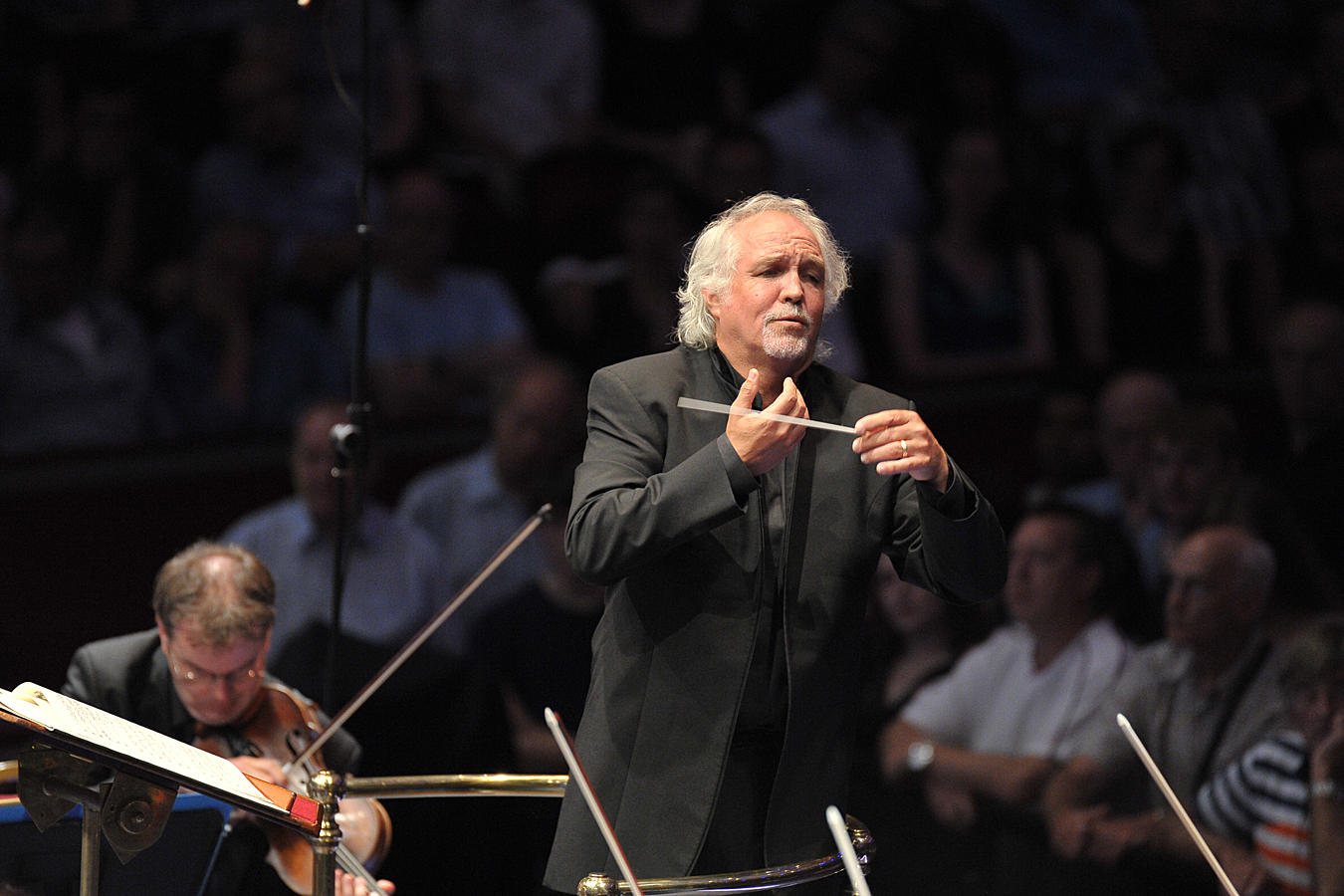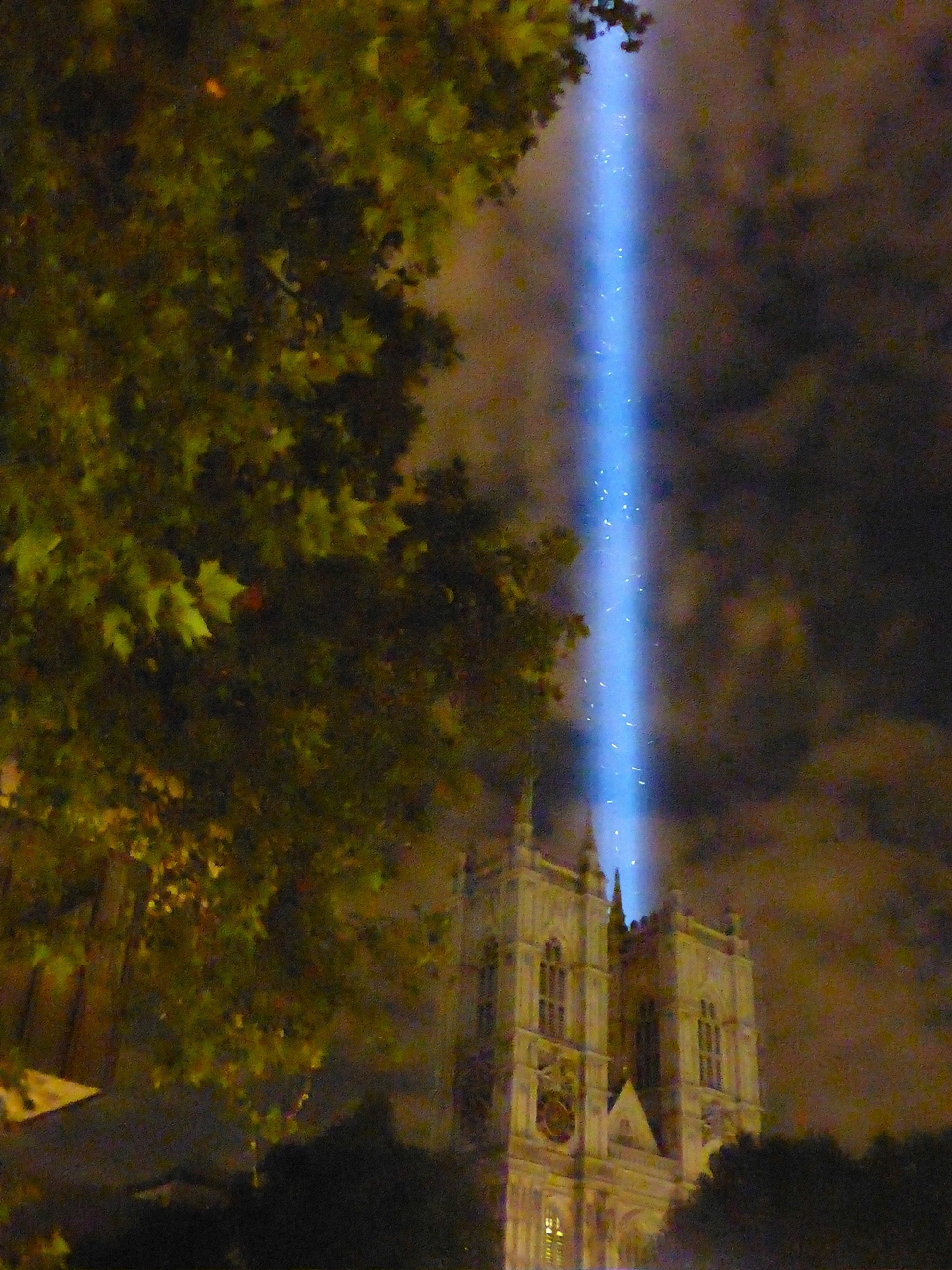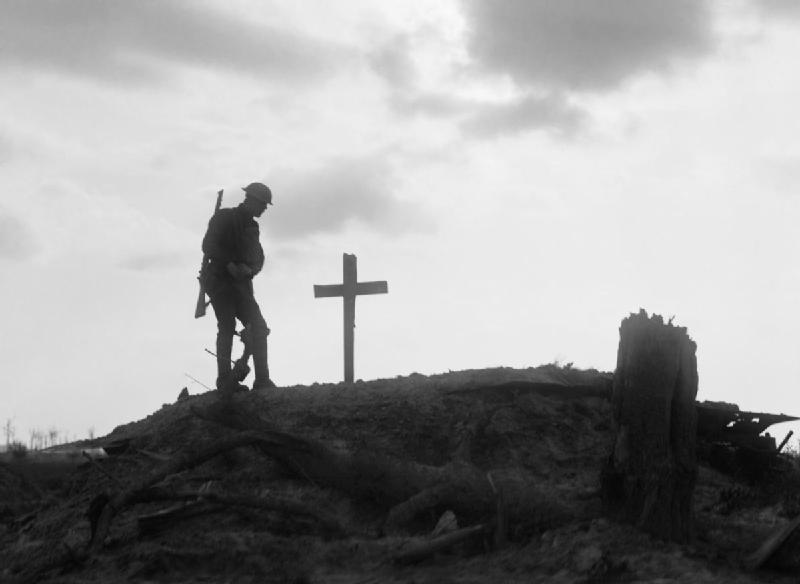Despairing in the depths of the Second World War, Richard Strauss turned to Mozart’s string quintets as well as the complete works of Goethe for evidence that German culture still existed. Vaughan Williams might well have done the same for his native art during the so-called Great War in homaging the music of Thomas Tallis. In fact his great Fantasia was first performed in 1910, not long after Mahler completed his Ninth Symphony – again, not as a premonition of the cataclysm to come but in this instance as a personal, embattled late chapter reflecting on a life he knew was coming to an end. That the BBC Proms purposefully engaged both to serve as complex commemorations of 100 years since the First World War began to change human life for ever was vindicated by echoes in the Westminster Abbey service later last night.
If Mahler’s barracks calls and funeral marches stem, like much else, from the natural sounds of his childhood – the “building blocks”, as he put it, that he constantly reordered – the kinship of the Ninth’s great final Adagio with the hymn “Abide with me” is more likely to have resulted from his going round churches in New York during his final years. It was uncanny to hear that tune, “Eventide”, echoed in Parry’s Chorale Prelude for organ over at the Abbey long after Mahler’s final cries and whispers had died away (and as a Tavener ritual was unfolding in a late-night Prom which would have been equally tempting – another cue for late night reflection with the iPlayer, perhaps; and see the "Lights Out" excerpt on the next page). More obvious links, but no less potent from James O’Donnell and the Westminster Abbey Choir, were the continuing homages to Vaughan Williams (the Kyrie of his Mass) and Tallis (Salvator Mundi).

In the symphony, it was again those moments where only a handful of instruments are tellingly used that really made their mark: the muted trombones and hollow clarinet chords in the dead zones of the massive first movement’s cycle of hope and collapse, Rosemary Eliot’s lonely flute, Mark O’Keeffe’s subtly vibratoed trumpeter from heaven in the thick of the nasty Rondo-Burleske and finally, of course, the violins fading to nothing against a near-silence from the previously restless audience. I couldn’t argue with a single one of Runnicles’ tempo-choices; as pacing, his interpretation was exemplary. So why did it leave me cold?
Certainly Albert’s colosseum tends to blanket bite and attack, and the orchestra is used to playing in the much smaller, acoustically brighter and sharper Glasgow City Halls, but I’m not sure how much real welly there was from the Scots strings. Certainly those stomach-churning turbulences didn’t seem to dig deep; and if you looked at the players, only the section leaders, above all violinist Laura Samuel, were really moving with the music (opinions in the musical world are divided on how necessary it is to sway and roll, but certainly it creates a more involving visual impression, and this lot seemed unusually stiff). It also depends on how emotional, programmatic even, you think Mahler’s style should be. I’m not saying that the BBCSSO should emulate the Berlin or Vienna Philharmonic, but more attack could have gone a long way to scour our souls.
 No tears for the endgame from this listener, then. The Abbey ritual, reflecting in Dean John Hall’s words on “the failure of the human spirit that led to an inexorable slide into war”, was mostly a sober experience. It's not my place to judge the readings from responses to the early days of the war; let's just say that the music was uniformly magnificent.
No tears for the endgame from this listener, then. The Abbey ritual, reflecting in Dean John Hall’s words on “the failure of the human spirit that led to an inexorable slide into war”, was mostly a sober experience. It's not my place to judge the readings from responses to the early days of the war; let's just say that the music was uniformly magnificent.
Purcell topped the Vaughan Williams and Tallis contributions, troubled by the thrum of helicopters overhead, with the astonishing harmonic progressions of “Remember not, Lord, our offences”, and Walton’s setting of Phineas Fletcher’s “Drop, drop, slow tears” was no anticlimax (what a final cadence!). Jennifer Pike echoed the single-instrument magic of the Prom with Vaughan Williams’ lark soaring: again, a lone voice in a massive place can often be more moving than full forces. But the bedrock was undoubtedly Bach’s harmonization of the Passion chorale “O Haupt voll Blut and Wunden”, and a more engulfing emotion finally came, for me at any rate, with the apocalypse of his C minor Prelude and Fugue, BWV 546, after the service.
Towards the end, before Camilla snuffed out the last of the five symbolic candles – however it may have looked on the telly, there was never near-darkness in the Abbey as the main lights remained on – David Matthews’ newly commissioned anthem was sung by the choir around the Grave of the Unknown Warrior. Mysteriously distant from my coign of vantage, it dared to take Harold Monro’s 1914 meditation on the absence of God and came across as singular and haunting, a piece to listen carefully to again. Eliot’s “what we call the beginning” from the last of the Four Quartets was complemented by St John’s “In the beginning was the Word” for an ambiguous coda. We may have missed Jeremy Deller’s hour-long downloadable installation, but we came out to Ryoji Ikeda’s spectra (pictured above by the writer), a beam of light from Victoria Tower Gardens, to be seen every night for a week. All very stage-managed, theatrically symbolic, media-driven, but effective all the same.
- Prom 24 is available to listen on the BBC Radio 3 iPlayer for a month
- Watch the Westminster Abbey service (plus padding) for the next six days on the BBC iPlayer
Overleaf: watch the "Lights Out" conclusion to the Late Night Prom, with Samuel West reading Owen's Anthem for Doomed Youth and the Tallis Scholars conducted by Peter Phillips singing Tavener's The Lamb
Also appropriate: watch Vasily Petrenko and the Royal Liverpool Philharmonic Orchestra in the funeral-march slow movement from Elgar's Second Symphony earlier this Proms season














Add comment